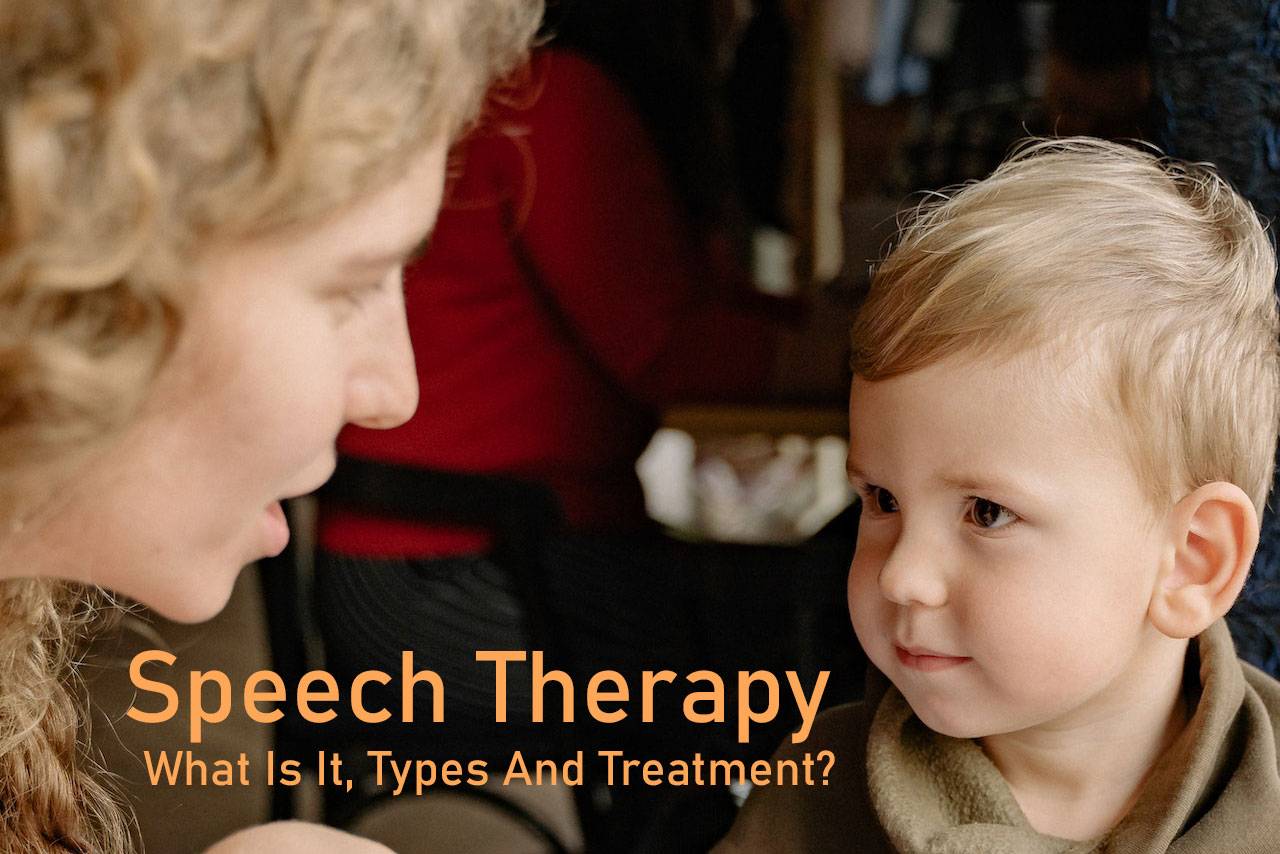Speech Therapy: What Is It, Types And Treatment?

It may be difficulty speaking, difficulty swallowing, or some other form of communication; speech therapy helps. Speech therapists work with patients of any age who present a wide variety of communication disorders.
This may involve articulation, fluency, voice, and many other types of problems. In this blog post, we discuss what speech therapy is and how it can help improve the quality of life either for you or your loved one.
What is Speech Therapy and what are its purposes?
Speech therapy is a treatment or type of rehabilitation that helps people with communication disorders. The main purpose of speech therapy is to help the individual learn how to communicate effectively.
The purpose of Speech Therapy in treating a wide range of disorders which includes but is not limited to:
- Articulation disorders: inability or atypical production of certain speech sounds.
- Fluency disorders: featuring unusual repetitions, prolongations, blocks, interjections, broken words, revisions, and pauses in speech.
- Voice disorders: abnormal pitch, volume, or quality of voice.
- Receptive and expressive language disorders: problems understanding or using spoken language.
It also can be used for people of all ages from infants to adults.
Types of Speech Therapy
It can be categorized into three major types of speech therapies comprising articulation, fluency, and voice therapy. Not all these speech therapies have several benefits.
1. Articulation therapy:
Articulation therapy may help in improving the clarity of an individual’s speech. The treatment also allows the person to learn the correct production of the sounds.
2. Fluency therapy:
Fluency therapy allows an individual to learn to speak smoothly and without interruption. It helps reduce stuttering.
3. Voice therapy:
Voice therapy teaches a person to correctly use his or her voice. It can help improve the sound of a person’s voice.
Improving any of these three areas can enhance a person’s quality of life.
Does My Child Need Speech Therapy?
Here are ways you can know whether or not your child needs speech therapy.
- If your child doesn’t say any words by 18 months old
- If your child has a hard time making certain sounds (such as “s” or “r”), or leaves sounds out of words
- If your child speaks in a way that is hard to understand (for example, he or she may speak in a monotone voice or use odd inflections)
- If your child has trouble following directions
- If your child has trouble with rhyming words
- If your child stutters when speaking
If you notice any of these signs, it is important to consult with pediatric speech therapists. They will be able to assess your child and determine if speech therapy is necessary.
If one suspects that his or her child has a communication disorder, he or she needs to consult with his or her child’s pediatrician. One can be referred to a speech-language pathologist for evaluation. A speech-language pathologist will determine if the child actually has a disorder and the type of treatment to be followed.
Treatment Methods used in Speech Therapy
Speech treatment methods differ from one individual to another and depending on the type of disorder. However, there are some common speech therapy treatment methods commonly followed.
1. Articulation therapy:
In an articulation treatment, exercises include correctly producing the sound, practicing words containing the sound, and providing feedback.
2. Fluency therapy:
In treating fluency, exercises on controlling breathing, correct production of sounds, and making the patient numb towards stuttering problems may be done.
3. Voice therapy:
Voice therapy treatment methods include exercises for pitch and volume, including exercises for breath support and resonance.
Methods of treatment will vary depending on the client’s needs.
Speech Therapist’s Role in the Family
The role of the speech therapist vis-à-vis the family is supportive and advisory. They can help the family understand the disorder and the best way to support the person concerned. They are also able to provide resources and information about the disorder.
The speech therapist may facilitate the family in making a plan to support the individual. They may also advise how to best communicate with the individual.
The professional’s role in the family would be supportive, advisory, and resourceful as well. They can facilitate the family members to understand the disorder and how they can be supportive
Tips for Helping your Child with Speech Therapy at Home
A list following can help you support and guide in enabling your child with speech therapy at home.
- Encourage your child to practice all their sounds and words by reading books, singing songs, and playing games.
- Praise your child for using a good mouth and tongue placement. You can demonstrate this first for them by showing them how the sound should be produced.
- Let him rest if he or she is tired. Take breaks by reading a book or by engaging in some games.
- Allow your child to use his voice by reading with them, singing some songs, or playing certain games.
- Read to them loud: This frequently will enable your child to hear different types of sounds and words.
- Make sure your child is getting enough sleep: This will help your child be rested and ready to learn and also enable the brain to process new information faster.
- Give him an avenue for self-expression: This means listening more to him, asking him questions, and letting him talk.
- Make communication the priority of your home. Let them know that they can air their thoughts and feelings out but make them safe to do this by making the setting nonjudgmental to be able to do this.
- Give your child practice talking. This would include you talking to him, reading to him, singing songs with him, etc.
- Model correct speech in front of your child.
- Allow your child to express his or her feelings by using words. Listen and respond to him/her. Always give choices.
- Finally, patience is very essential; praise your child on his/her progress.
Conclusion
Speech therapy is also one of the useful treatments in the case of communication disorders. It may start from babies up to adults. It may let the children speak clearly and fluently while enabling adults to regain their lost communication skills due to a stroke or another type of injury in the brain.
They may work on clarity of speech, fluency of speech, and the development of language skills.
Difficulty Speaking, Swallowing, or with Your Language: Difficulty speaking, swallowing, or having general issues with language may lead your doctor to send you to a speech therapist.


